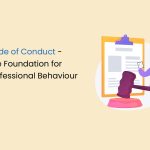Exit interviews are a process that allows the company to understand why an employee has decided to leave the organisation. It is an opportunity for the company to gain valuable insights, foster continuous improvement, and maintain positive relationships with departing employees.
Let’s discuss exit interviews – meaning, significance and what questions to ask.
What are Exit Interviews?
Exit interviews are surveys conducted with employees when they decide to part with the company. The purpose of these surveys is to gather feedback on the reasons behind employees’ departure, their likes and dislikes as an employee, and the areas of the company that need improvement. The data collected from exit interviews is most effective when compiled and tracked to identify patterns and trends.
A line manager or HR representative is usually the one to host an exit interview. An excellent exit interview is designed to improve company performance, retain talent, and make advocates out of departing employees.
Significance of Exit Interviews
The significance of exit interviews is as follows:
- Employee Feedback: Departing employees can provide valuable feedback on various aspects of the organisation during exit interviews, including the work environment, management, company culture, and growth opportunities.
- Identifying Patterns: The analysis of exit interview data can reveal patterns and trends to help organisations identify systemic issues contributing to employee turnover. Addressing these issues can lead to improved retention rates.
- Learning and Development: Exit interviews can help organisations improve their training and development programs by identifying reasons for employee turnover. This information can inform strategies to enhance skill development, career advancement, and overall job satisfaction.
- Enhancing Company Culture: Organisations can gain valuable insights into cultural aspects influencing employee turnover by actively listening to departing employees. Use this information to improve company culture and attract current and future employees.
Benefits of Exit Interviews
The benefits of exit interviews are as follows:
- Revealing Structural/Cultural Issues: Ex-employees are more honest about their work experience. Exit interviews provide deep insights into corporate culture and help identify potential issues.
- Maintaining A Strong Employer Brand: Exit interviews provide valuable feedback for companies by allowing open dialogue to improve their operations.
- Amicable Parting: It is essential to ensure that employees leave positively, especially considering that 15% return to their former employer. Conducting a well-planned exit interview can help achieve that.
- Orderly Departure: An exit interview can help ensure a smooth departure by addressing remaining obligations such as returning equipment, signing non-compete and IP agreements, etc.
When should Exit Interviews be Conducted?
It is recommended to schedule an exit interview a week before an employee’s last day of work. A list of questions or a survey beforehand will allow employees to prepare their thoughts and feel more comfortable. This also gives the interviewer an idea of the employee’s feedback, making the conversation more productive.
Sometimes, during exit interviews, specific issues are brought up that could have been addressed earlier, leading to employee retention. Therefore, it is critical to maintain open and regular communication between HR and the employee throughout their employment.
Should Exit Interviews be Mandatory?
It’s essential to conduct employee exit interviews, regardless of whether the employee resigned or was terminated. Even if the employee didn’t have a specific reason to leave, they may still have valuable feedback to help improve the team. However, if the situation ends badly, evaluating whether an exit interview is appropriate on a case-by-case basis is best. Sometimes, it may be better to let the matter rest. In any case, the situation’s context needs to be considered.
What Questions to Ask in Exit Interviews?
Here are some essential questions and their purpose:
This can explain why an employee is departing from the company if it is voluntary.
Although there may not be an immediate solution, this advice can aid in retaining staff in the future.
If an employee did not feel heard or the processes got in the way of feeling listened to, this can help find out.
This question can help understand the employee’s journey, from the first day of orientation to the initial weeks of settling into their role.
It helps to identify if there are any key relationships or areas of leadership that require improvement.
If the workplace culture and atmosphere are getting in the way of keeping staff around, the organisation can start doing some upkeep.
This can help identify deficiencies in the sourcing and hiring practices that need improvement.
It helps assess the organisation’s role in employee development and if the employee’s departure is due to performance issues.
This assesses the employer’s brand strength and potential for ex-employee referrals.
This can help evaluate whether the company values and culture need improvement, optimisation, or redefinition.
Ask an ex-employee what might help to hear it from the source.
Gain insight into what this role requires and how it can be improved.
Best Practices for Exit Interviews
The best practices for exit interviews are as follows:
- Conduct exit interviews as soon as possible after the employee leaves to ensure their thoughts and feelings are still fresh in their mind.
- Communicate the purpose when scheduling the meeting.
- Assure the employee that their feedback will be kept confidential to encourage them to be open and honest in their responses.
- Prepare a list of appropriate and valuable questions before conducting the interview.
- Use standardised questions to ensure consistency in the information gathered, including inquiries about the work environment, job satisfaction, reasons for leaving, and suggestions for improvement.
- Actively listen to the departing employee’s responses during the interview to demonstrate their feedback is valued.
- Express excitement and support for their new opportunity.
- Regularly review and analyse the feedback collected after the interview.
- Use the information gathered from the interview to implement changes that can improve other employees’ experiences.
Three Common Mistakes Made During Exit Interviews
The three common mistakes made are as follows:
- Confusing it with Other Conversations: Keep the exit interview distinct from other offboarding activities. It’s not part of dismissal meetings or handover processes. Conduct it separately to maintain confidentiality and openness, which is essential for HR’s understanding. Mixing it with other discussions dilutes its effectiveness.
- Involving Supervisors: Exclude direct or indirect supervisors from exit interviews. These discussions should involve a neutral party, preferably from HR, to ensure honesty. Bosses’ involvement may lead to biased or confrontational conversations rather than productive feedback.
- Violating Confidentiality: Evaluate findings within the HR department and provide anonymous, summarised information to supervisors or management. In smaller companies, where this can be challenging, avoid emailing meeting notes at all costs to maintain confidentiality. Circulating confidential criticism from exit interviews can lead to a loss of trust among employees and hinder future honest feedback.
What does HR do with Exit Interviews?
Retaining employees is a crucial priority for HR departments due to the high cost of employee turnover for businesses. HR departments conduct exit interviews to learn from departing employees’ experiences to reduce employee turnover and associated costs. They carefully review the feedback obtained during the interview, remove personal data, and then analyse it quarterly or annually to identify trends. HR may need to conduct internal investigations or report potential crimes to law enforcement if serious issues arise.
Conclusion
Exit interviews can be a cornerstone of an organisation’s growth and improvement strategy when conducted thoughtfully and consistently. Embracing the art of exit interviews not only aids in understanding why employees leave but also positions companies to create a workplace that attracts and retains top talent. By valuing the insights provided by departing employees, organisations can turn farewells into opportunities for growth, learning, and continuous improvement.
Frequently Asked Questions
What do you say in an exit interview?
In an exit interview:
- Express gratitude and highlight positive experiences.
- Diplomatically address concerns and provide constructive feedback.
- Keep it professional, avoid negativity, and focus on growth.
- Appreciate colleagues and the learning experience.
- Leave a positive impression by maintaining a productive conversation.
Are exit interviews a good idea?
An exit interview allows employers to evaluate the effectiveness of their training and promotion processes. By listening to the honest feedback of departing employees, businesses can gain insights into which policies must be revised or procedures updated to retain and attract new staff.
What is the main objective of the exit interview?
Exit interviews evaluate employee experience, enhance retention, and identify improvement opportunities. Standardising the process can also manage turnover risks.
Can you skip the exit interview?
Participating in an exit interview can offer benefits by giving you a chance to provide constructive feedback. If you're unable to attend, let HR know professionally to avoid damaging relationships and future references.
What are the disadvantages of exit interviews?
Exit interviews may not be effective due to reluctance to share honest feedback, fear of repercussions, and the perception that it's too late to address concerns. Organisational changes may take time to occur based on the feedback received.
What are the risks of exit interviews?
Exit interviews risk incomplete or biased information due to fear of negative consequences. Negative comments may damage relationships and affect references, and organisations may not promptly address issues raised. Departing employees may be dissuaded from participating if they do not perceive tangible benefits from sharing feedback.
Why are exit interviews good for employees?
Exit interviews allow employees to give feedback and contribute to organisational improvement. It provides closure and a sense of contribution, making for a smoother transition out of the company.
Who conducts exit interviews?
HR professionals conduct exit interviews to gather feedback from departing employees. This helps identify areas for improvement, enhance employee experiences, and address any concerns that influenced the employee's decision to leave.
How long do exit interviews last?
Exit interviews typically last 30 minutes to an hour. Adequate time should be allocated for employees to provide meaningful insights.





















